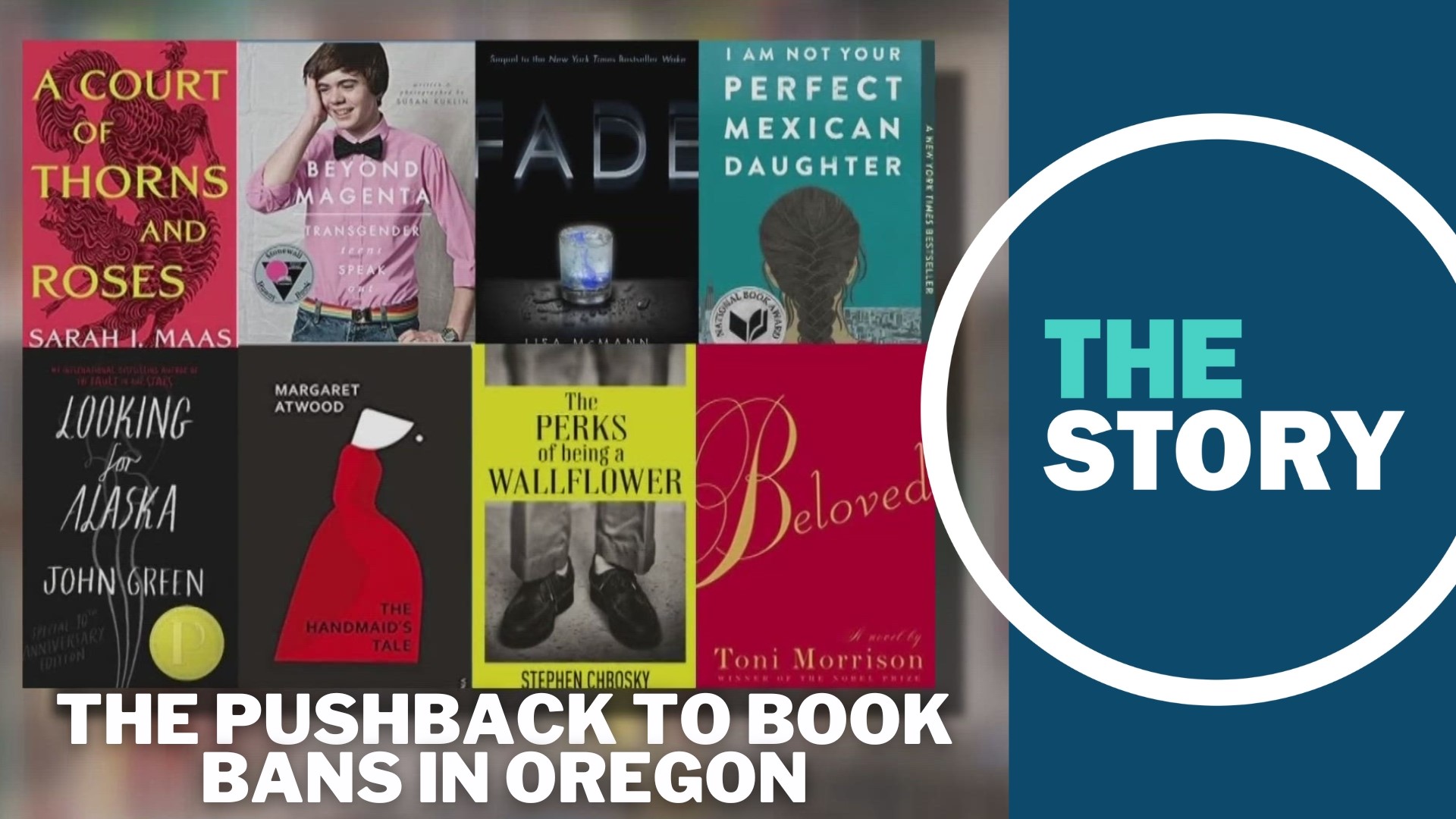CANBY, Ore. — Editor's note: The bill referenced in this story, SB 1583, did not receive a vote in the Oregon House before legislative leadership ended the session three days ahead of the constitutionally mandated cut-off.
Oregon's ban on book bans is one step closer to becoming law. Senate Bill 1583 would restrict school boards from banning books in school libraries if the ban is done in a discriminatory way.
SB 1583 passed the Senate this week. It's sponsored by Oregon Sen. Lew Frederick, who represents north and Northeast Portland.
"I think it will stop the effort to try and discriminate against groups of people," Frederick said. "Right now, we see that as part of a national effort and a local effort — in the state effort, too — to try to discriminate against different groups of people, and using the books as a way to do that.
"This, I think, basically takes that particular approach out of the mix and lets us read. Let kids find out about reading. It does not force anybody to read anything; it says these things are available."
An overwhelming majority of the books challenged in both school and public libraries are either by or about people of color or LGBTQIA people. That's a trend both in Oregon and nationally.
Frederick said that the bill targets those discriminatory book challenges. Books could still be removed from libraries if they aren't age appropriate.
But opponents of the bill, such as Sen. Daniel Bonham, said it takes away the power of locally elected school boards.
"I don't think that it is this body's responsibility to tell a school district what they can and cannot make available. I want to be clear that books still exist whether they are not in the schools' libraries. We are not burning books, we are not banning books, we are just saying this is probably not something that a child should be encouraged to read," said Bonham, a Republican from The Dalles.
A similar bill has passed both chambers in Washington and it's on its way to the governor's desk.
In both states, parents could still contact their kids' school and request that their child not have access to any books they find questionable. Kids also won't be forced to read anything; they'd only have the option to check them out of the school library.
Looking back on the Canby School District incident
The Oregon Intellectual Freedom Committee testified on behalf of the Oregon bill. They're a group through the Oregon Library Association that helps work on policies that support libraries. The Oregon Intellectual Freedom Committee has been tracking book challenges in Oregon for more than 30 years. Last year had the highest number of challenges ever, according to the group.
This week, the Oregon Intellectual Freedom Committee released a report looking at a book challenge KGW covered last year in the Canby School District. Two community members requested that 37 books be removed from the libraries, saying they contained sexual content, violence and drugs. Thirteen of those books include LGBTQ or racial themes. The school district pulled all of the books off the school shelves for months through the end of the school year while they were being reviewed.
Dozens of students and members of the community protested, demanding that they return. In the end, the district only removed one: "Lolita." Others were returned in the summer, but some had age restrictions for kids to check them out.
The Intellectual Freedom Committee said the Canby School District went about the book challenge in the wrong way, especially because they removed the books before they were reviewed.
"When a title is being removed, even for five minutes or 10 minutes or two weeks or however long, that title is not available or accessible to the community that it was previously available," said Emily O'Neal, the chair of the Intellectual Freedom Committee. "Specifically, because of the content within that that title that is considered censorship for the amount of time that it is not on the shelf. So, for this particular scenario — with the 35 or 37 titles to be removed from circulation during the review process — that would be considered censorship."
Guidance from the Oregon Department of Education says that challenged books should stay in circulation until the review process is complete. It also says the district wasn't transparent in their review process and didn't offer a way for their final decision on the books to be appealed.
The decision to remove the books from circulation, O'Neal said, happened almost immediately after two parents expressed their concerns during a board meeting. After reviewing board meetings, O'Neal said they saw there was a vocal community who wanted the books to stay on the shelves.
"And yet it was at the will of two parents that it did, and so I would ask the Canby School District to really look at the number of individuals that are saying, 'We don't want restricted access to information. We want our children to be able to learn openly,' O'Neal said.
O'Neal also said, if there are two parents who have concerns, then ask them to set guidelines for their own family rather than allowing them to dictate the entire school district.
The committee is asking the Canby School District to remove age restrictions on all books and return "Lolita" to the libraries. They also want Canby School District to update their book review policies.

